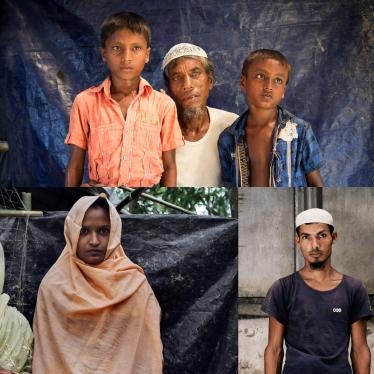Human Rights Watch today welcomed the possibility of establishing an international tribunal to try the leaders of the Khmer Rouge. The organization urged, however, that any court have the power to try all those who committed crimes against humanity during Cambodia's tragedy.
The United States' proposal now before the Security Council limits prosecutions to "senior members of the Khmer Rouge leadership," who committed crimes during their four-year rule from 1975 to 1979. The proposal notes that some of these people "may soon become available for prosecution," seemingly referring to those still in the jungle, while potentially excluding those who have abandoned the Khmer Rouge to join the Hun Sen government.
"It is about time that Pol Pot's henchmen were brought to justice," said Kenneth Roth, Executive Director of Human Rights Watch. "But the court cannot be politically selective. It must be able to try anyone who committed crimes against humanity during that nightmare - whether they are now with the Khmer Rouge or have joined the Cambodian government."
Human Rights Watch added that the concept of "senior leadership" should be expanded to include the leading cadre of the Khmer Rouge's central security apparatus, such as those who ran the notorious Tuol Sleng torture center, as well as military officers who ordered massacres.
The organization also said the latest proposal only underscored the need to create a permanent criminal court for all those accused of genocide, war crimes and crimes against humanity, rather than rely on a series of selective ad-hoc tribunals.
Human Rights Watch noted that the proposal to create the new tribunal came 19 years after the overthrow of the Khmer Rouge regime, after its leader, Pol Pot, had died, and only six weeks before more than 100 countries are to meet in Rome on June 15 to create a permanent international criminal court. Those negotiations are expected to produce a showdown over the new court's independence. The United States - which has presented the current proposal on Khmer Rouge trials - would allow future prosecutions in most cases only with the approval of the Security Council, where five states have a veto. A coalition of over 50 countries, led by Canada, Germany, Argentina and South Africa, is seeking to free the future court from such a restriction.
"To deter future atrocities, it is critical to establish a permanent court with an independent prosecutor to try all those accused of genocide, serious war crimes and crimes against humanity -- not just those who have fallen out of favor with the big powers," said Roth.
Human Rights Watch also called for any Khmer Rouge trials to be conducted by a chamber of the existing ad hoc tribunals on the former Yugoslavia and Rwanda, which are already functioning with a common Appeals Chamber and prosecutor. The group cautioned against the time-consuming process of selecting a new prosecutor, noting that it took a year to achieve consensus on a prosecutor for the Yugoslavia tribunal.






